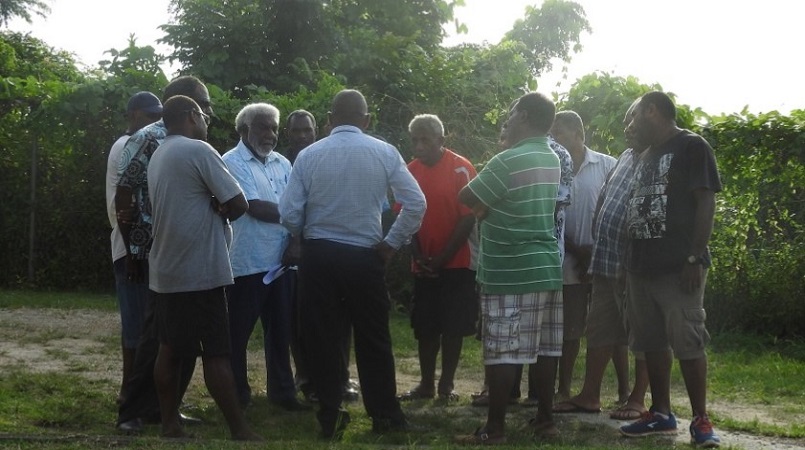
The conspiracy case against Deputy Prime Minister Joe Natuman and former acting police commissioner, Aru Maralau has been referred to the Supreme Court for June’s hearing.
Chief Magistrate Felix Steven, announced his decision yesterday afternoon.
He ruled that the duo did have a case to answer and committed their case to the Supreme Court.
Chief Magistrate Steven told the court he has considered all materials presented to him by the prosecution, the defense counsels, and a point of law that was decided by Supreme Court judge Chedwynd and found that the information in the preliminary inquiry materials is not so much disputed.
“The only issue is the question of whether this information discloses prima facie evidence relating to the charges laid by the public prosecutor. The opinions given so far differs from learned prosecutor, the learned counsels for the defense and the learned judge because of the different interpretations and meanings given to section 79 (a) (b) and (c) of the Penal Code Act,” he ruled.
The chief magistrate said because there is not so much disagreement about the information and because the prosecution has still not agreed with the opinions and the comments of Supreme Court Judge Chedwynd and does not intend to make amendments to the charges.
“This court will confirm that there is a prima facie case disclosed. Accordingly, this court authorizes the laying of the proposed information against the intended accused persons, Joe Yhakowaie Natuman and Aru Maralau and they are hereby committed to the Supreme Court for trial upon information and to be weighed on a higher scale”.
Last week, the judgment of a Supreme Court ruling on a point of law, as requested by the Chief Magistrate found that the charges of conspiracy to defeat the course of justice, was laid under the wrong subsection of the Penal Code.
The Supreme Court judge said: “There appears to have been some confusion in the way the case was argued before the Learned Chief Magistrate because although the prosecution has proceeded under section 79 (c) they appear to have argued their case as if it were a charge under 79 (a) or preventing process before the court”.
“These are not conspiracy to pervert the course of justice charges. At the groove in the record, both defendants are charged under section 79 (c)”, he said.
He made the remarks after clarifying that section 79 (a), (b) and (c) of the Penal Code have separate meanings and separate offences, and that only subsections (a) and (b) refer to obstruction in relation to “the course of justice”. “Subsection (c) refers to obstruction of, or interference with something entirely different”, he said.
Justice Chetwynd made a point that legal process is not the same as the course of justice.
The above points were considered and the chief magistrates committed the trial before the Supreme Court on 7 June 2016 at 9am.
Pic: Defense counsel Mr Nalyal and Mr Natuman explaining the Magistrates Court decision to supporters outside the court house
